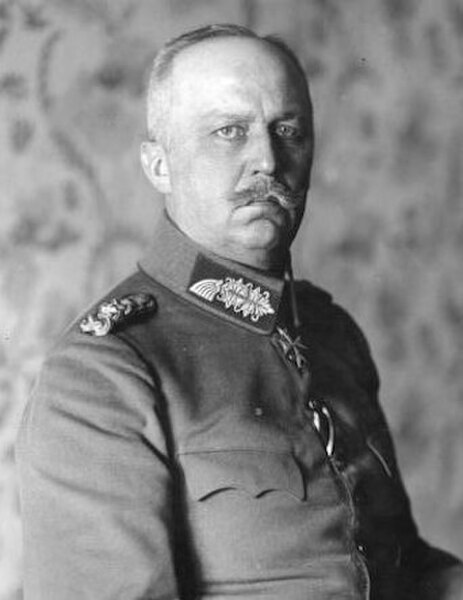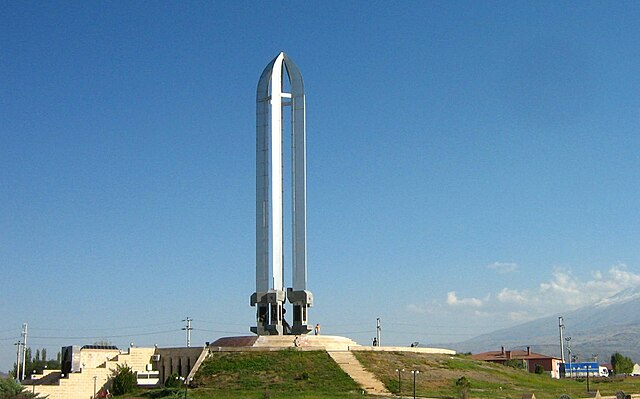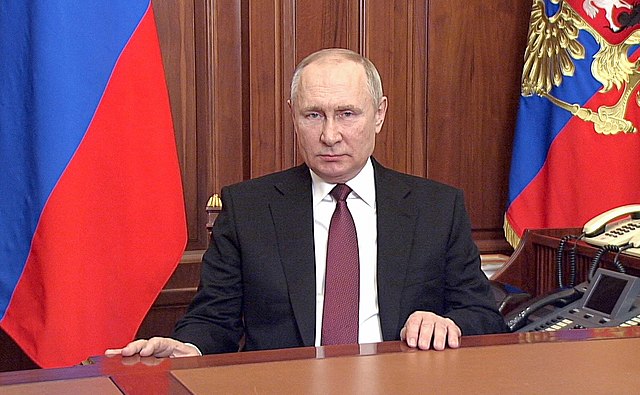A big lie is a gross distortion or misrepresentation of the truth primarily used as a political propaganda technique. The German expression was first used by Adolf Hitler in his book Mein Kampf (1925) to describe how people could be induced to believe so colossal a lie because they would not believe that someone "could have the impudence to distort the truth so infamously". Hitler claimed that the technique had been used by Jews to blame Germany's loss in World War I on German general Erich Ludendorff, who was a prominent nationalist political leader in the Weimar Republic.
Adolf Hitler in the early 1920s, about the time he began writing Mein Kampf (1925)
Hitler claimed that Jews had spread the "big lie" that General Erich Ludendorff was responsible for the country's loss in World War I.
Joseph Goebbels, the head of Nazi Germany's Ministry of Propaganda
Accusation in a mirror (AiM) is a technique often used in the context of hate speech incitement, where one falsely attributes one's own motives and/or intentions to one's adversaries. It has been cited, along with dehumanization, as one of the indirect or cloaked forms of incitement to genocide, which has contributed to the commission of genocide, for example in the Holocaust or the Rwandan genocide. By invoking collective self-defense, accusation in a mirror is used to justify genocide, similar to self-defense as a defense for individual homicide.
The strategy was used by Joseph Goebbels.
The Iğdır Genocide Memorial and Museum in eastern Turkey promotes the pseudohistorical notion that it was Armenians who committed genocide against the ruling Turks, rather than the other way around.
Russian President Vladimir Putin





